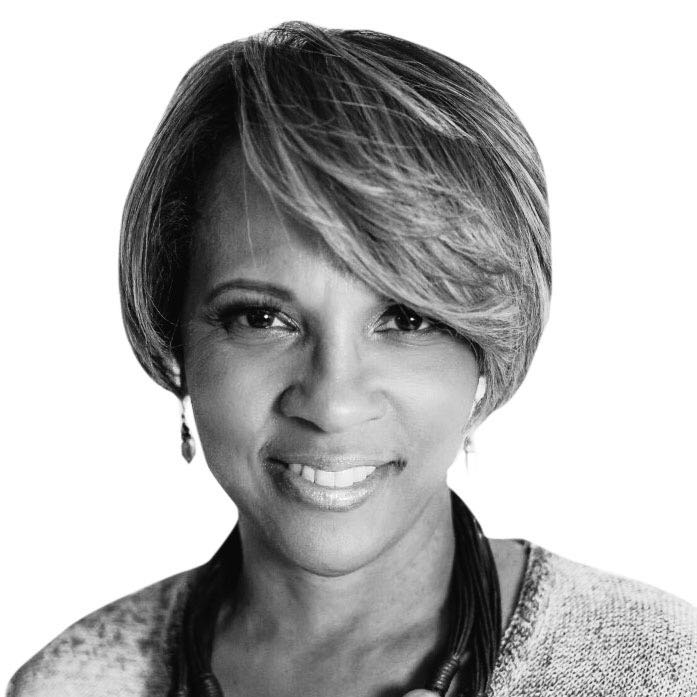As we commemorate 100 years of the 19th Amendment this week, many women of color, and Black women in particular, didn’t feel much like celebrating. When this historic amendment was adopted and ratified by the state of Tennessee and became bedrock American law in 1920, Jim Crow segregation was raging in the South. Black men still faced odious and racially discriminatory laws, literacy tests, and poll taxes that denied them what had supposedly been granted by the 15th Amendment 50 years earlier: The right of citizens of the United States to vote shall not be denied or abridged by the United States or by any State on account of race, color, or previous condition of servitude.
It was clear that the women’s vote wasn’t going to extend to Black women in the South. But history has a way of correcting itself when people remain vigilant, and no group in America has remained more politically and socially vigilant than Black women. Kamala Harris—the only Black woman in the United States Senate and just the second to ever serve there—made that point ever so clear as she accepted the Democratic Party’s nomination for vice president Wednesday evening and gave America a taste of what we have been missing by relegating Black women until now to second-place status.
She began by talking about the 19th Amendment, and the Black women who, after its passage went on “without fanfare or recognition… organized and marched and fought not just for their vote, but for a seat at the table. These women worked to make democracy and opportunity real in the lives of all of us that followed.”
“We’re at an inflection point,” she said later, turning her attention to Trump. “The constant chaos leaves us adrift. The incompetence makes us feel afraid. The callousness makes us feel alone. It’s a lot. And here’s the thing: We can do better and deserve so much more.”
Tonight, the rightful cynicism of generations of Black women came to a fork in the road. Tonight a Black woman, who is also half-South Asian, accepted her party’s nomination for the second-highest office in the land. Our promissory note has come due. Our hard work, loyalty and commitment have seemingly paid off in the form of one Kamala Devi Harris.
Tonight, she made her case against Trump and “for the people,” and spoke eloquently of the disproportionate impact that the virus has had on Black Americans, like so many other American catastrophes, showing why she will make a great partner and number two to President Joseph R. Biden, saying of their possible administration:
“We must elect a president who will bring something different, something better, and do the important work. A president who will bring all of us together—Black, white, Latino, Asian, Indigenous—to achieve the future we collectively want. We must elect Joe Biden.”
She continued speaking directly to President Trump, “Right now, we have a president who turns our tragedies into political weapons. Joe will be a president who turns our challenges into purpose.”
And now Harris is poised to take up the mantle of the world’s most thankless, meaningless and yet powerfully positioned perch in national politics: the vice presidency. If history is her guide, she may well not just become the first woman to hold the post, but ride it all the way to the presidency. John Adams, Thomas Jefferson, Martin Van Buren, John Tyler, Millard Filmore, Andrew Johnson, Chester Arthur, Teddy Roosevelt, Calvin Coolodge, Harry S. Truman, Richard Nixon, Lyndon Johnson, Gerald Ford, and George H.W. Bush were all vice presidents who became presidents. But all of them were white men.
Harris’ path to the vice presidency was a relatively quick one for such an unlikely pioneer. Her assent in California began at the local level as a district attorney, then as the state’s first woman attorney general, and finally as a United States senator. She had a powerful mentor in former California Speaker Willie Brown, a powerful fundraising base in wealthy, liberal San Francisco, and all the political gifts that the gods can bestow on mortals. She used all of that strategically and carefully to get to this moment.
Harris talked about how her Indian-born mother came to this country in search of a cure for the very cancer that would one day take her life. “She raised us to be strong confident Black women.” And Soror Harris also made clear that a Biden-Harris administration will be committed to racial and social justice. That it will be committed to the “American promise” one worth fighting for.
And she talked about what a truly great America would look like, and “the vision that our parents and grandparents fought for, the vision that made my own life possible, the vision that makes the American promise - for all its complexities and imperfections - a promise worth fighting for… We believe that our country, all of us, will stand together for a better future.”
For Harris, the daughter of two immigrant parents, a Jamaican and a woman of South Asian descent, Wednesday night must have felt a bit like Cinderella dancing at the ball. She had worked hard her entire life. Sacrificing. Studying hard. Having to be, as all ambitious Black and brown women must be, “twice as good”. She had to endure the soft bigotry of others' low expectations. The stereotypes. The calls to wait her turn. The intimidations. The labels. The silent loneliness that all professional women quietly endure. She has seen it all. Experienced it all. And last night she was the culmination of it all.
There she stood, 5 foot 2 inches, petite, attractive, and on the second biggest platform in the world giving the most important speech of her life and showing the world what Black and brown women are really made of—grace, grit, goodness, godliness—and that we know how to get into good trouble.







